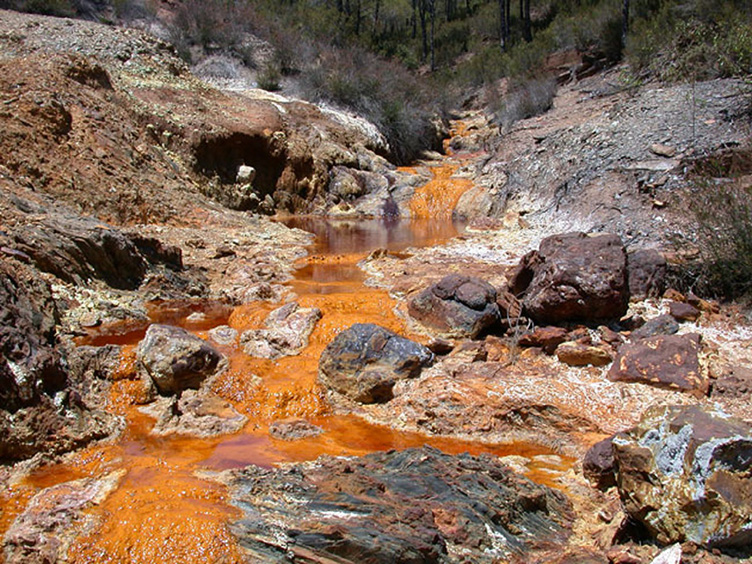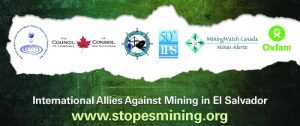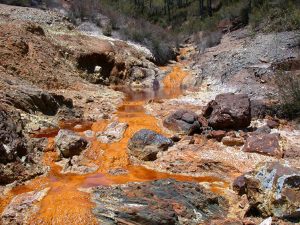Defending Natural Resources, International Meddling, Online Resources
Sister Cities Mining Fact Sheet
The State of Mining in El Salvador
· According to Salvadoran Mining Law a company must obtain both an exploration and exploitation permit in order to open a mine in El Salvador.
· There are currently 29 active exploration permits and 73 applications. They are for areas in the Northern region of El Salvador, which is the source of the Lempa River. The Lempa River provides drinking water in El Salvador for over 50% of the population.
· There are no active exploitation permits. If all the 10 exploitation permits solicited were issued they would cover the equivalent to 15% of El Salvador’s national territory.
· 80% of gold is used for jewelry, 15% is used for electronics, and 5% is used for medical reasons.
· The price of gold has skyrocketed in recent years with the economic crisis. In 2000 an ounce of gold was worth $282. Currently it is worth about $1,200.
Mining is Damaging to the Environment and Human Health
· The average mine, like the El Dorado mine proposed in Cabañas, uses about 90,000 liters of water an hour, which is equivalent to what a typical Salvadoran family would consume in 20 years. El Salvador has the second highest water shortage index in the Americas.
· The average mine uses 40 tons of cyanide a day in the mineral extraction process.
· There must be two tons of soil removed from the earth to produce one ounce of gold (the equivalent of one gold ring). Heavy metals already in the soil, such as arsenic, lead, selenium, and cadmium, are released during this process
· The infant mortality rates around the Valle de Siria mine in Honduras are 12 times higher than normal rates in Honduras, and 50% of the surrounding population has developed skin rashes or legions.
· To this day there are still effects and acid run off from the mines built by the Romans in France and Spain.
Mining Does Not Bring Economic Development for Communities
· The estimated life of the Pacific Rim mine is only 6 years.
· If all the mining projects in line to be permitted were approved they would create about 13,800 jobs which are equal to only about 3% of the economically active population. Of those jobs, the majority of them would be manual labor that would only last during the mine’s construction. The remaining longer-term jobs would most likely be given to technicians brought in from outside the region.
· The mining companies are estimating $9.8 billion in profits if all the projects are approved. According to Salvadoran law they would only be obligated to leave 3% of those profits in El Salvador.
Mining Causes Social Conflict in Communities
· Pacific Rim has tried to sway public opinion by paying for scholarships, patron saint festivals, school repairs, and heath brigades in communities. They have actively targeted communities not directly affected by mining in order to convince them to put pressure on communities that would be affected.
· Since 2009, dozens of mining opponents, from priests to radio journalists, have received death threats. There have been three anti-mining activists, Ramiro Rivera, Dora Alicia Sortos Rodriguez and Marcelo Rivera, murdered in Cabañas.
· The man accused of assaulting community leader Ramiro Rivera in August of 2009, Oscar Menjivar, was found absolved of all charges in a trial in March of 2010. There were serious irregularities in the trial. Menjívar, known by his neighbors to have limited financial resources, was represented by a team of lawyers from El Salvador’s four most prestigious law firms – raising the question of who was financing his defense. Witnesses also report that one of the tribunal judges slept through a significant portion of the trial. According to the Rivera family’s lawyer, the tribunal recognized that there was significant evidence pointing to Menjívar’s guilt, but it ruled “not guilty” because the principal eyewitness, Rivera himself, who was murdered last December, was not present to testify against Menjívar.
· Mining companies have also created this kind of community conflict within in Mexico, Guatemala and Ecuador.
Strong Resistance to Mining in El Salvador
· Affected communities and Salvadoran organizations opposed to mining formed the Mesa Nacional Frente la Minería in 2005.
· In 2007, the Catholic Bishops’ Conference of El Salvador made a public statement expressing its concern for the environment and communities that would be affected by mining. Both the previous Archbishop of El Salvador Fernando Saenz Lacalle and the present Archibishop José Luis Escobar Alas have come out against mining.
· In October 2007, the Institute for Public Opinion of the Central American University “José Simeón Cañas” conducted a public opinion poll that found that 62.5% of those surveyed considering El Salvador an inappropriate country for mining.
· Right-wing former President Antonio Elias Saca said he would rather pay the $77 million dollars to Pacific Rim in their suit against the government of El Salvador than allow mining in December of 2008.
· Current President Mauricio Funes stated in January of 2010 that he would not allow mining during his term and would support anti-mining legislation.
Two Mining Companies Are Suing the Salvadoran Government
· Pacific Rim Cayman LLC is suing for $77 million dollars and the Milwaukee based company Commerce Group Corp and San Sebastian Gold Mines Inc is suing for $100 million. Both claim that the Salvadoran government has violated the investor rights outlined in Chapter 10 of the Central American Free Trade Agreement. Chapter 10 protects the right to sue for a loss of projected profits.
· Because Pacific Rim main headquarters are located in Vancouver and Canada is not included in the Central American Free Trade Agreement (CAFTA) the company is using a Nevada based subsidiary started in 2007 that hasn’t been active since 2008 to file the suit against El Salvador.
· The cases will be tried in the International Centre for Settlement of Investment Disputes (ICSID), a branch of the World Bank.
· The previous ICSID Secretary General, Roberto Dañino Zapata, is currently the Executive Director and Vice-President of Hochschild Mining PLC, a company with mining operations in South America and Canada. The current Secretary General is Meg Kinnear, who was until recently a lawyer for the Canadian Trade Law Bureau, a body that counsels the Canadian government on matters of international trade. International mining operations are often on their agenda as 60% of all mining companies in the world are registered in Canada.
· Out of all the cases currently being tried in the ICSID 25% are related to extractive industries (oil, gas and mining). Latin American governments make up 9% of the 155 ICSID members but are facing over 55% of the total cases.
· Anti-mining activists see some hope in the example of Bolivia’s fight against a similar ICSID lawsuit. In 2001 the U.S. based company Betchel sued the Bolivian government for $25 million claiming the government unfairly canceled their water contract for Bolivia’s third largest city, Cochabamba. Because of public pressure on the company and the President of Betchel the company was forced to settle the case for only $1 in order to make the public campaign against them go away.
Mining in Guatemala and Honduras Will Affect El Salvador
· There are currently 13 proposed mining projects along the El Salvador/Guatemala border and 42 along the El Salvador/Honduras border.
· The Cerro Blanco mine is being constructed only 10 km from the Salvadoran border. If the mine is allowed to begin operation it would contaminate the Lago Guija which is the source of the Lempa River. The Guatemalan government has already given the company an extraction permit for 25 years, even though the mine is in an area in which any project needs approval from the Salvadoran, Guatemalan, and Honduran governments.
U.S. and Canadian Solidarity Supports El Salvador’s Anti-Mining Movement
· A broad based alliance has formed among dozens of solidarity, human rights, environmental, faith and trade organizations from the U.S. and Canada to support the Salvadoran anti-mining movement.
· This alliance has organized protests, hundreds of phone calls to Pacific Rim and Salvadoran and U.S. officials, organizational and Congressional sign-on letters, and anti-mining media campaigns.
· There is currently a bill in the Canadian parliament (C-300), which mandate that the Canadian government regulate the activities of Canadian mining companies.



